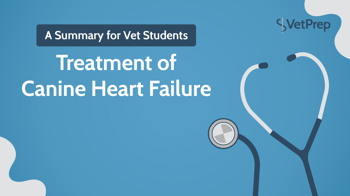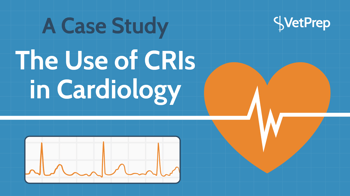Stepping into an operating room for the first time may seem daunting, but it doesn’t have to be! You already have all of the technical knowledge necessary to prepare an operating room successfully, but there are some nuances that you don’t want to forget.
Follow Us
Cathy Barnette

Recent Posts
Some vet students struggle through their cardiology courses, looking at ECG tracings like some sort of Rorschach test that requires significant creativity to interpret.
(Full disclosure: I was one of those students!) Other students, however, love cardiology. From the ECGs to the echocardiogram images, they enjoy the challenges and rewards of diagnosing and treating cardiovascular conditions.
While all general practitioners utilize cardiology on a somewhat regular basis, specialization can allow you to treat cardiology cases all day, every day. If you are drawn to cardiology, this may be an option worth considering.
Topics: Cardiology, Veterinary Cardiologist
Treatment of Canine Heart Failure: A Summary for Vet Students
While your veterinary cardiology courses have likely covered a wide variety of cardiac diseases, both common and uncommon, there is one presentation that you are almost guaranteed to see in your first year as a new grad: a dog in congestive heart failure (CHF).
If you are comfortable with this, you will be able to handle the overwhelming majority of what’s expected of a general practice vet!
Topics: Canine Heart Diseases
A 9 yo MN mixed breed dog, weighing 72 pounds (32.7 kg), presented for a recent onset of panting, shortness of breath, weakness, and syncopal episodes. On physical examination, the dog’s heart rate was 160 bpm, his mucous membranes were pale, and his pulses were weak and thready.
An ECG confirmed the tachycardia, along with some additional findings. Instead of normal P waves followed by QRS complexes, the veterinarian observed an absence of P waves and complexes that were wide and bizarre.
Topics: Cardiology
Dental Home Care Options: A Quick Summary for Vet Students
Although performing dental cleanings in the veterinary hospital is valuable, getting clients on board with home care is every bit as essential. After all, imagine how your teeth would look if you completely skipped brushing and just went to the dental hygienist for yearly cleanings!
The good news is that there are plenty of home care options available, so you can find a product to meet the needs of almost any client. The bad news is that this wide variety of dental products can be overwhelming, making it difficult to choose what is “best” for any given pet.
Topics: Veteirnary Dentistry, Dental Care





